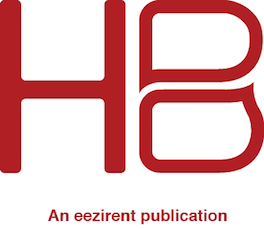
15 Oct Get it in writing
Renting a property is essentially a business transaction. As such all important communication should be in writing. In fact, several key communications must be in writing or they are deemed not to exist. But this is not always the case.
What form should the writing take?
All states of Australia use a range of Prescribed Forms. These are documents such as lease agreements, entry and breach notices that are issued by the state’s rental authority. If a prescribed form exists it must be used. If it is not, it may mean that the action will be deemed not to have occurred if the matter ends up going to Tribunal or some other legal consequence occurs; an insurance claim for instance.
Scenario: a landlord does not wish to renew the lease for a tenant. They telephone the tenant to advise them of this and even follow up with an email. When the handover date arrives, the tenants are still in the property and show no sign of moving out. The landlord goes to Tribunal for a warrant of possession. The Tribunal promptly rules in favour of the tenant because the landlord did not issue the notice to leave on the prescribed form.
Does electronic transmission count?
Yes, as long as you got the tenant’s agreement at the start of the lease that notices can be issued electronically. This should be recorded on the lease. Email and text message qualify as approved electronic transmission.
Communicating electronically DOES NOT mean you do not need to use a prescribed form. If one exists it ought to be used.
The benefit of electronic transmission is that notice periods do not need to include postage days. It is wise to request a read receipt on the email if possible. You should certainly keep all electronic communications.
The lease
We all know that, next to the entry condition report, the lease is the most important document in the rental process. It is a contract and it basically explains how that particular rental reflects the relevant state legislation.
Despite this status, it is not uncommon for private landlords ‘not to bother’ with a lease. Rather things are worked out on a verbal basis. Be aware that in this situation, it really doesn’t matter what you agree verbally, the provisions of the legislation will still apply. As will the legal tenet that you “can’t contract out of the act”. So if you have a verbal agreement on something that is actually contrary to the legislation, the law will over-ride your agreement.
Verbal leases are deemed to be periodic also, not fixed term.
Notices during the lease
There are a variety of situations, good and bad, during a lease that will require formal communication with the tenants. Access to the property for a routine inspection is an example. These formal notifications should always be in writing.
Depending on the state of Australia in which the property is located, they may or may not need to be on a prescribed form.
Email follow-up
You may have a situation where you’ve discussed something with a tenant over the phone. A lease renewal matter, or an item of repairs and maintenance perhaps. It is always prudent to follow up the discussion with an email summarising the details. This will ensure that both parties have drawn the same conclusions from the verbal discussion. It also provides a record of the activity if needed.



Sorry, the comment form is closed at this time.